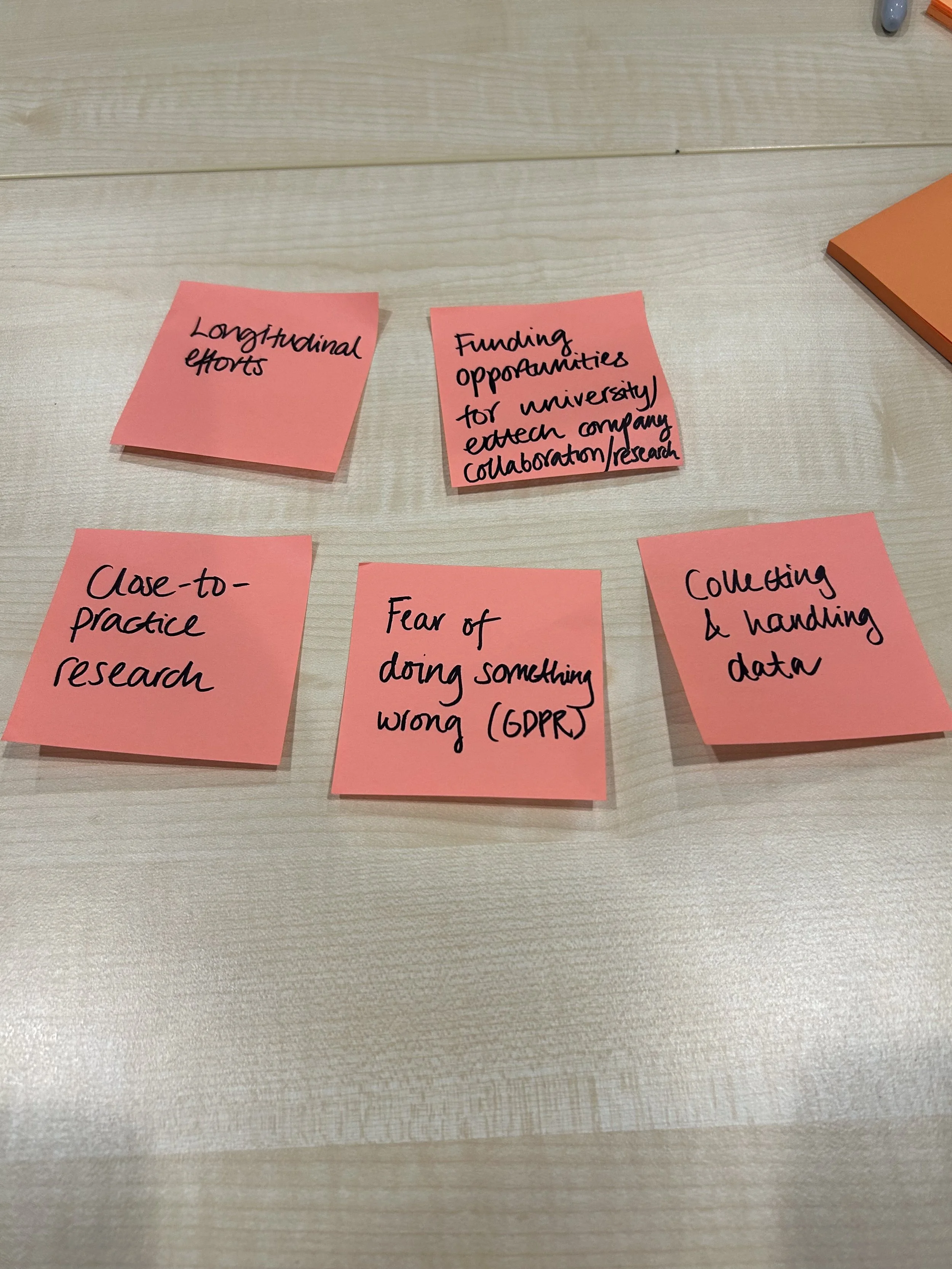Workshop Report: Exploring Trust and Evidence in EdTech
Key Takeaways from the EdTech Strategy Lab/EmpowerED workshop at SETT Stockholm
A Collaborative Approach to EdTech Challenges
This year’s SETT in Stockholm (Scandinavian Education Technology Transformation) featured a one-day long special format targeting education stakeholders from across the Scandinavian countries to network, share experiences, and gain a Nordic perspective on the most current educational issues: the Nordic Track. As part of this event, over 20 participants, including educators, EdTech organisations, school leaders, and researchers from Nordic countries, gathered for a 60-minute breakfast session to discuss the themes of trust and evidence in the EdTech sector.
The workshop, a collaborative effort by the European EdTech Alliance (EEA) and its EmpowerED project partners, Ifous and OAMK, marked the second in-person gathering of the EdTech Strategy Lab series and aimed to gather stakeholder perspectives on challenges and opportunities related to quality assurance in EdTech.
Defining Trust and Evidence
Michelle DuQuette, Community Engagement Specialist at the EEA, led participants through the workshop and engaged them in vivid discussions which focused on collecting challenges, obstacles, and opportunities for building trust and generating evidence in the EdTech sector.
A key insight from the workshop was the recognition of trust as a crucial element in educational settings, surpassing even the immediate need for evidence. One participant noted, “Lack of trust works against democratic development,” emphasising that trust enhances the effectiveness of learning by fostering an environment conducive to inquiry and acceptance of the information taught, which in turn supports democratic development. There was also a strong consensus on the necessity for a well-funded, efficient research collaboration across stakeholders that communicates results in an accessible manner. Moreover, participants called for a clearer definition of “evidence” to facilitate more inclusive discussions and to make the topic more tangible.
““Lack of trust works against democratic development” ”
Ongoing Questions and Challenges
The workshop raised several important questions for the future:
How can we encourage stakeholders to value evidence?
How can EdTech organisations measure the effectiveness of their products and services and present the results in a transparent and accessible manner?
What strategies support building and maintaining trust in dynamic educational settings?
How can outcomes of testing environments be better shared with key stakeholders?
What approaches exist in developing agile evidence in a fast-paced industry like the EdTech sector?
How can multi-stakeholder research projects on educational technologies be funded?
Potential Solutions
After the ideation phase, the session featured three insightful presentations. Johanna Karlén from Ifous introduced Swedish EdTest, an EdTech testing environment that fosters learning and collaboration across different stakeholder groups. Anna Åkerfeldt (Ifous) presented two open-source guidelines aimed at EdTech organisations: “Validating EdTech Prototypes and Products with Educators and Learners: A Practical Guide” and “Navigating the EdTech Landscape: From Product Quality Development to Business Success in the EU Market.” Johanna Pihlajamaa (OAMK) encouraged industry participants to access a free Mini-MOOC on Key Competencies for EdTech Entrepreneurs. All three initiatives aim to support EdTech organisations in developing high quality educational technologies.
Moving Forward
The workshop facilitated a valuable exchange on enhancing the reliability and acceptance of educational technologies through trust and evidence. Antonia Clary wrapped up the session by encouraging attendees to stay involved and participate in follow-up activities. These include an online survey for further reflection and personal contextualisation of the workshop outcomes, as well as submitting relevant resources to be published on the EdTech Strategy Labs website.
As discussions continue, the insights from this workshop will help formulate concrete problem statements and define clear paths forward, fostering a deeper understanding among various stakeholders involved in developing and purchasing quality EdTech solutions.
Get involved
Register to attend our events: we are organising 10+ events online and in person with different project partners.
Contribute to our resource library: we are looking for any type of resource that adds to the discussion about evidence creation, testing, quality assurance and partnership development in EdTech.
Participate in the EdTech Strategy Lab research: we’d love to have you join upcoming surveys and research insight groups, if you’d like to participate, please let us know.
This is where you can sign up and register your interest: Join Us — EdTech Strategy Lab.





